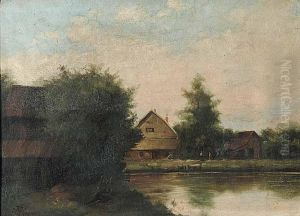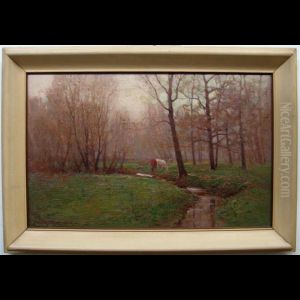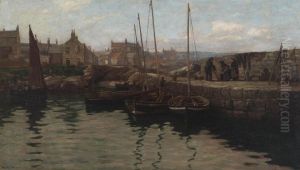Alexander M. Fleming Paintings
Alexander Fleming was a Scottish bacteriologist and Nobel laureate who is best known for his discovery of the antibiotic substance penicillin in 1928. Born on August 6, 1881, in Lochfield, Ayrshire, Scotland, Fleming showed an early interest in the natural world. He moved to London as a teenager and later studied medicine at St. Mary's Hospital Medical School, now part of Imperial College London, qualifying with distinction in 1906.
Fleming began his career as a researcher and lecturer, focusing on bacteriology. His work on antiseptics during World War I led to the realization that antiseptics could cause more harm than good in the treatment of wounds. This revelation prompted him to search for alternative methods to combat bacterial infections.
The accidental discovery of penicillin occurred when Fleming noticed that a petri dish containing Staphylococcus bacteria had been contaminated by a mold called Penicillium notatum. The mold had secreted a substance that inhibited bacterial growth, which Fleming identified as penicillin. He published his findings in 1929, but it was not until the late 1930s and 1940s, with the work of Howard Florey and Ernst Boris Chain, that penicillin was developed into a practical drug.
Fleming's discovery of penicillin revolutionized the field of medicine by introducing the age of antibiotics. It has saved countless lives by treating bacterial infections that were once fatal. For this monumental achievement, Fleming, along with Florey and Chain, was awarded the Nobel Prize in Physiology or Medicine in 1945.
In addition to penicillin, Fleming is credited with discovering the enzyme lysozyme in 1923, which has mild antiseptic properties and is found in saliva and tears. Throughout his career, he was honored with numerous awards and distinctions, including knighthood in 1944, which allowed him to use the title 'Sir.'
Alexander Fleming died on March 11, 1955, in London, United Kingdom. His legacy continues to influence the medical community and his work remains a cornerstone in the fight against infectious diseases.








